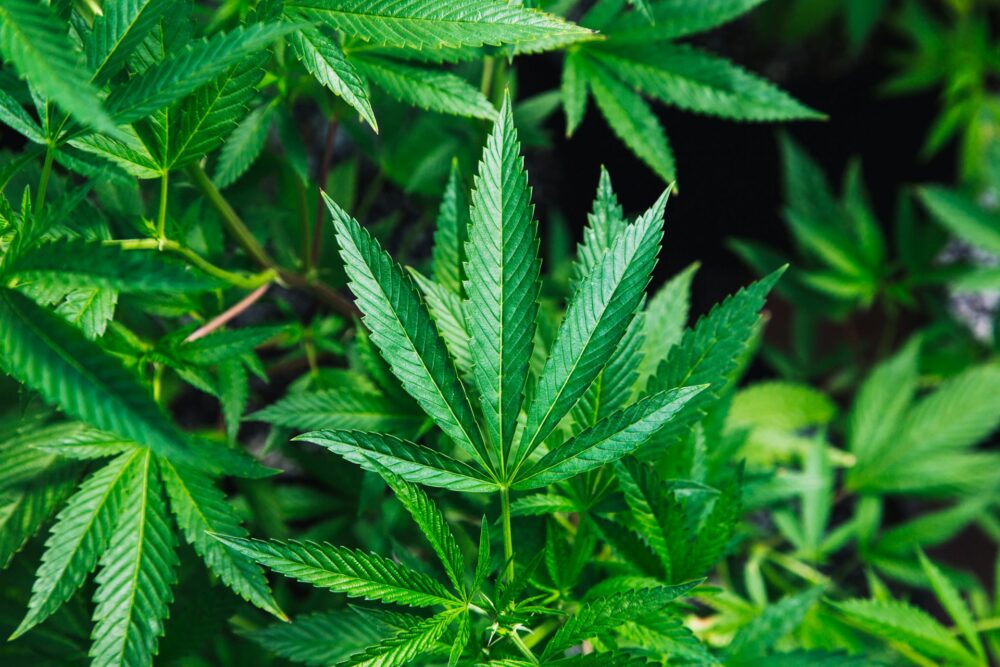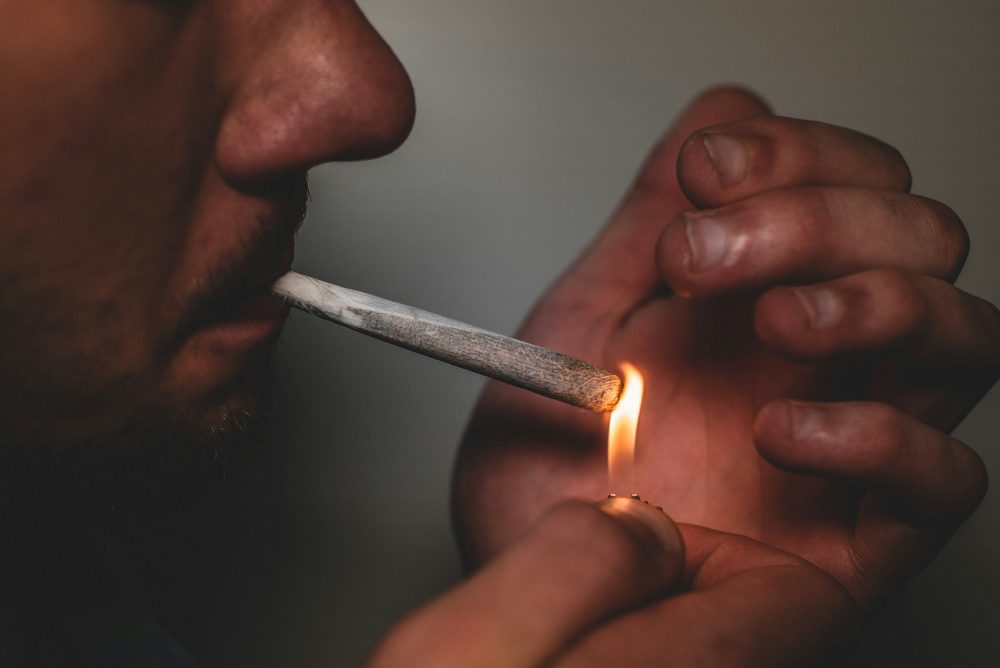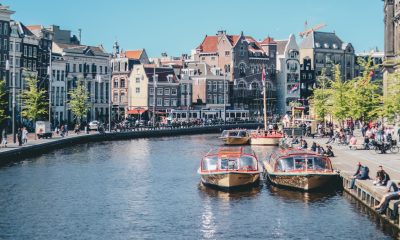Cannabis
Why the Dutch Are Growing Less and Less Cannabis: Four Times Fewer Plantations in 2023 than in 2019
The Dutch cannabis market is undergoing a huge change. The decreasing number of plantations is the result of global legalization trends that have allowed other countries to enter and dominate the market. Despite this, the Netherlands has not lost its importance as a European drug hub but is increasingly focused on cannabis imports and the production of synthetic drugs.

The Netherlands, which for decades was considered a pioneer in the field of cannabis cultivation and liberal drug policy, is starting to lose its leading position. The number of Dutch cannabis plantations in is falling rapidly, a result of global changes in cannabis policy.
The legalization of cannabis in other countries, such as Canada, the US and Germany, is introducing new realities to the market and forcing the Netherlands to change its role. Although the Netherlands is still a major player in the European drug market, the role of cannabis in the country is changing drastically.
Why is hemp cultivation declining in the Netherlands?
In 2019, the Dutch police dismantled three times more cannabis plantations than in 2023, when 1,230 were discovered. Over the past four years, the number of plantations discovered has fallen by more than 60%, a clear sign that Dutch cannabis cultivation is losing its importance. The main reason for this is the growing number of countries that are deciding to legalize cannabis, thus creating better conditions for local producers to operate.
Just a few years ago, the Netherlands was a major supplier of cannabis to many European countries, but that market is shrinking. When Canada legalized cannabis federally in 2018, and other U.S. states followed suit with Colorado and California, the international cannabis market began to change rapidly. Dutch producers, who for years supplied cannabis to countries where it was illegal, now have to compete with legal companies from North America and other parts of the world.
The Impact of Cannabis Legalization in Other Countries
The legalization of cannabis in countries such as Canada, the US and Germany has had a direct impact on the Dutch market. While the Netherlands was previously considered a center for growing and exporting cannabis, countries that have legalized cultivation themselves are now becoming competitors.
Canada: After the legalization of cannabis in 2018, Canadian producers began to rapidly export their products to global markets, especially to Europe. As these exports decrease, demand for cannabis produced in the Netherlands decreases, causing a decrease in the number of crops.
USA: As more and more US states legalize cannabis, American producers are becoming increasingly competitive with the Netherlands. The US cannabis market is growing at a breakneck pace, and local producers have the advantage of modern technology and a much larger scale of production.
Germany: The legalization of medical cannabis in Germany and the introduction of legalization of possession and cultivation of marijuana for personal use is an additional blow to the Dutch industry. Germans will produce marijuana for their own use, which means even less demand for Dutch cannabis and a desire to buy on the black market.
Netherlands remains a drug hub despite decline in cannabis cultivation
Despite the decline in the number of cannabis plantations, the Netherlands does not lose its importance in the global drug trade. According to the report Fenomeenbeeld georganiseerde drugscriminaliteit 2024, the country is one of the main transit hubs for drugs in Europe, especially when it comes to cocaine, synthetic drugs and modern laboratories for their production.
The Netherlands also remains a leader in the production of synthetic drugs such as MDMA and amphetamine, which are successfully exported around the world. An increasing number of laboratories producing these drugs are located in the Netherlands, and many of them operate as combined laboratories (combilabs), where more than one substance can be produced. This allows criminals to react quickly to changing market demands.
Increased hemp imports to the Netherlands
More and more of the cannabis that enters the Dutch market comes from abroad. Imports of cannabis from countries such as Spain, the US and Canada are on the rise, a surprising change for a country that was once considered an exporter of the plant.
Dutch cannabis, while still legally sold in coffee shops, is losing ground as more and more consumers turn to imported products, which are often cheaper and offer a wider variety of strains. In this context, the Netherlands is taking on a new role – from an exporter to an importer of marijuana .
The Future of the Dutch Hemp Market
Will the Netherlands be able to maintain its position in the European cannabis market? Analysts agree that the country will have to adapt to the new situation and look for alternative ways to maintain its role in the drug industry. Although cannabis may be declining in importance, the Netherlands is still one of the leaders in the production of other drugs, such as synthetic opioids and THC derivatives .
In the legal market, the Netherlands needs to consider reforming its cannabis production laws to compete with countries that have already fully legalized it. Without it, the country could become increasingly dependent on imports, and local producers will find themselves in an even more difficult situation.
Summary: The Changing Role of the Netherlands in the Global Drug Market
The Dutch cannabis market is undergoing a huge change. The decreasing number of plantations is the result of global legalization trends that have allowed other countries to enter and dominate the market. Despite this, the Netherlands has not lost its importance as a European drug hub, but is increasingly focused on cannabis imports and the production of synthetic drugs.
In the future, the country will have to adapt to global realities and find new ways to maintain its position in the market.
The Netherlands, while still a major player in the drug market, is changing its role as it responds to new competition and global cannabis regulation.
__
(Featured image by Rick Proctor via Unsplash)
DISCLAIMER: This article was written by a third party contributor and does not reflect the opinion of Born2Invest, its management, staff or its associates. Please review our disclaimer for more information.
This article may include forward-looking statements. These forward-looking statements generally are identified by the words “believe,” “project,” “estimate,” “become,” “plan,” “will,” and similar expressions. These forward-looking statements involve known and unknown risks as well as uncertainties, including those discussed in the following cautionary statements and elsewhere in this article and on this site. Although the Company may believe that its expectations are based on reasonable assumptions, the actual results that the Company may achieve may differ materially from any forward-looking statements, which reflect the opinions of the management of the Company only as of the date hereof. Additionally, please make sure to read these important disclosures.
First published in FaktyKonopne. A third-party contributor translated and adapted the article from the original. In case of discrepancy, the original will prevail.
Although we made reasonable efforts to provide accurate translations, some parts may be incorrect. Born2Invest assumes no responsibility for errors, omissions or ambiguities in the translations provided on this website. Any person or entity relying on translated content does so at their own risk. Born2Invest is not responsible for losses caused by such reliance on the accuracy or reliability of translated information. If you wish to report an error or inaccuracy in the translation, we encourage you to contact us

-

 Biotech2 weeks ago
Biotech2 weeks agoEurope’s Biopharma at a Crossroads: Urgent Reforms Needed to Restore Global Competitiveness
-

 Cannabis23 hours ago
Cannabis23 hours agoCannabis Use and Brain Aging: What a Major Study Reveals
-

 Africa1 week ago
Africa1 week agoFrance and Morocco Sign Agreements to Boost Business Mobility and Investment
-

 Fintech6 days ago
Fintech6 days agoFindependent: Growing a FinTech Through Simplicity, Frugality, and Steady Steps






















